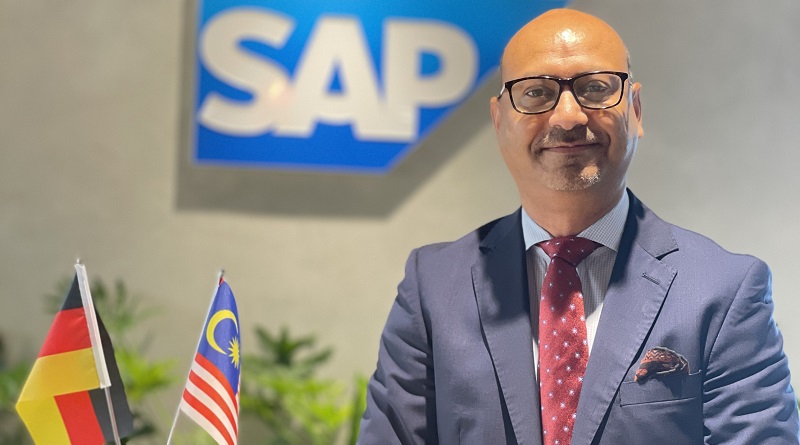SAP SE (NYSE: SAP) today announced the appointment of Saqib Sabah (pic) as the new Managing Director of SAP Malaysia Sdn Bhd. Prior to his appointment, Saqib served as the Chief Operating Officer for three years in SAP Pakistan.
Verena Siow, President and Managing Director, SAP South East Asia believes Sabah will lead SAP Malaysia to aid in accelerating Malaysia’s progress as an advanced digital economy and chart the path for national transformation goals.
“As one of the market leaders in enterprise application software, SAP is committed to help empower our customers and partners to become sustainable, intelligent and networked enterprises to run at their best. We are proud to have Saqib join us in SAP Malaysia to contribute in driving sustainable success in the cloud, meaningful change, and digital inclusivity to aid in spurring the goal for national competitiveness for all Malaysians” said Siow.
To date, SAP customers generate some 87% of total global commerce, and in Malaysia alone, SAP serves around 1500 customers in 25 industries, together with 50 partners.
Siow also said that the RISE with SAP offering is gaining traction in Malaysia, citing Petroliam Nasional Berhad (Petronas), Johor Corporation and PXL Marketing Sdn Bhd, as customers which continue to benefit from comprehensive, flexible, and innovative cloud-based transformation.
Sabah’s focus areas will include helping customers, partners, and communities tackle the biggest issues they face, such as business transformation in the cloud, building a resilient supply chain, and creating a sustainable future for organisations in Malaysia.
“I am extremely passionate about Malaysia’s growth and am a firm believer that technology is one of the keys for Malaysia to realise its aspirations of becoming a high-income nation,” said Sabah.
Before he started at SAP, Sabah was formerly the Managing Director of Teradata Malaysia. He had also previously founded a start-up venture where he developed artificial intelligence (AI) use cases related to capital markets, agriculture industry and telecommunication networks. Sabah is also a resident of Malaysia based in Kuala Lumpur with his family.
“During and post-pandemic, it has been demonstrated how critical digital technologies are, such as cloud and artificial intelligence (AI), for business continuity and to thrive amid uncertain times. In Malaysia, we have seen more businesses adopting cloud technologies to remain competitive and ensure that they adhere to the demands of their end-user customers,” Sabah added, citing a recent report from Information Services Group (ISG).
He also commended the government for its ‘Malaysia Digital’ national strategy, an initiative by the Malaysian Government to encourage and attract companies, talents and investment while enabling Malaysian businesses and the rakyat to play a leading part in the global digital revolution and digital economy.
Spearheaded by the Malaysian Digital Economy Corporation, Malaysia Digital aims to harmonise the growing demand of digital solutions with a steady supply of products and services, whilst continuing to strengthen enablers such as talents, infrastructure and regulations.


